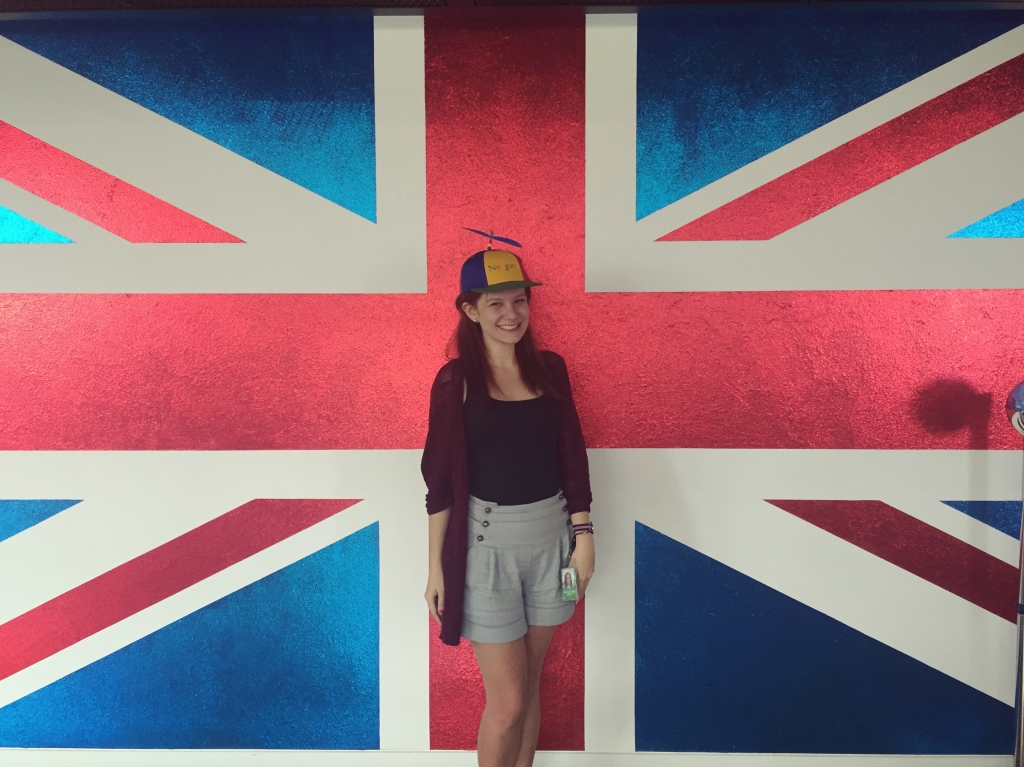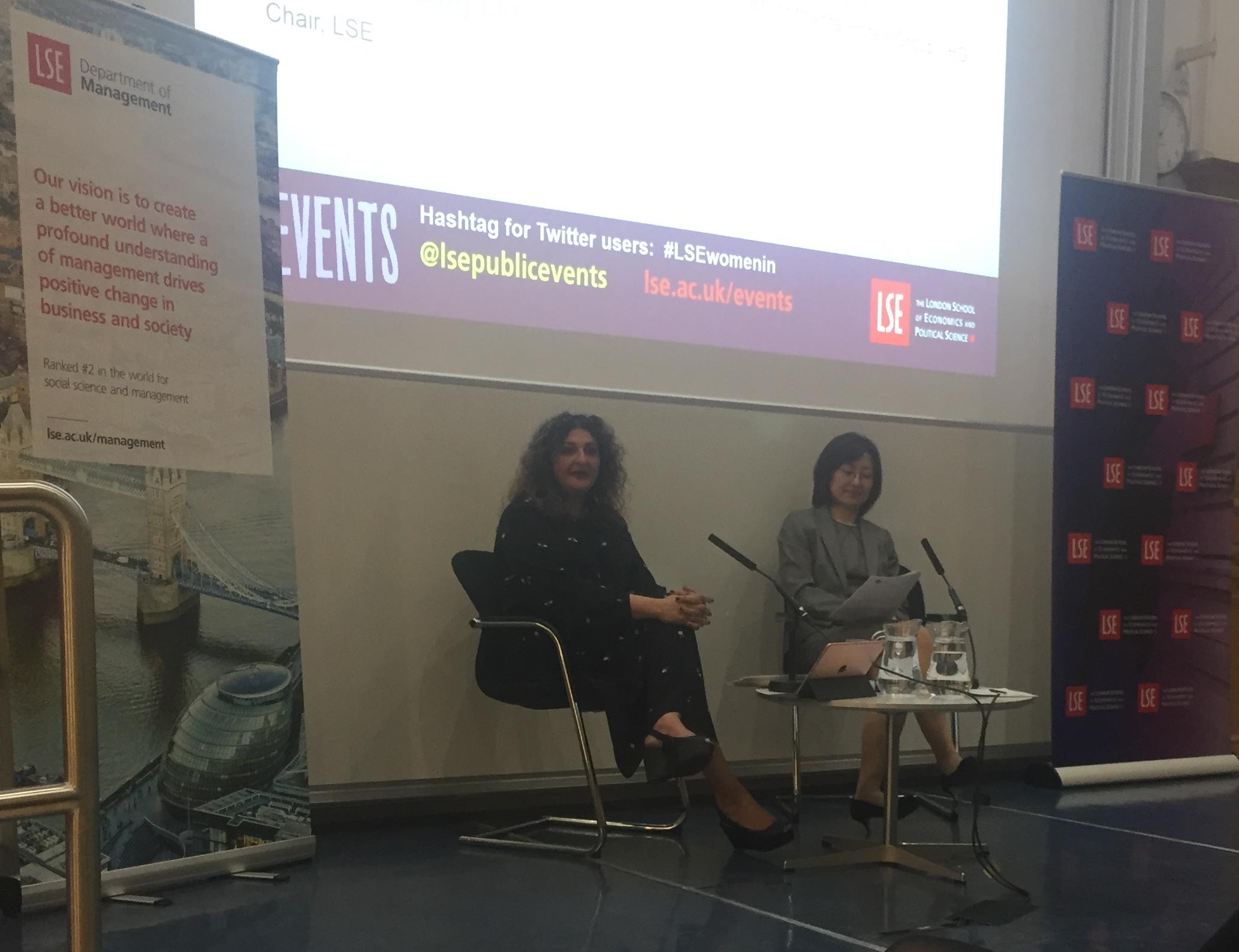Exactly one year ago, I was interviewed for my CEMS Internship at Google UK. I had no expectations (this being my first interview ever) and was miraculously stress free. Instead, I was excited about the great opportunity to spend one hour chatting with two Googlers working in one of the coolest and fastest-growing sectors: programmatic marketing. A few months later, after receiving my Noogler hat and my 3D badge, the doors of the colourful Central St. Giles office in London opened ahead of me.
As a Greek, I never thought I would say that ‘summer in the UK is cooler than lying down on some sandy exotic beach in Greece!’, but Google proved me wrong, offering me an experience that extended well beyond the summer. Upon returning to LSE to complete my Master’s, something crazy happened: I caught myself having a recurrent thought on various occasions during my student life: ‘Come on, there is a better way of doing things. We did at Google, why not here?’
Google, or to be precise, Googlers, taught me a whole lot about work and life. They showed me a different approach to getting things done in a more efficient and fun way, making me soon realise that these practical and motivational approaches could also enhance my academic journey. So what can university students learn from Google? Here is an ex-Noogler’s list!
Mingle & Learn
There is so much untapped learning potential within educational institutions, hidden in the untold stories of those right next to us – students, faculty and professional services staff. There are many people we’ve never had the chance to meet, like those too introverted to speak in public, or those studying seemingly ‘irrelevant’ subjects to ours. Often students can stay locked in offices and study-booths in the library, socialising only with the ones we happen to meet, usually at the start of our programmes. Guess what? The Google social ecosystem is just as chaotic and isolating, and without ways of socialising and learning across all organisational levels, it could lose its ‘family’ atmosphere, where everyone knows everyone and ideas flourish through daily interactions.
Two initiatives at Google caught my attention: firstly the Lunch-Ninja, an internal platform connecting employees in the same office, at random, for lunch; and secondly the Fireside Chats, a type of casual interview of Google executives, during which they share their work-related vision or personal stories. Learning by doing is one thing. But listening to managers, analysts and tons of other Googlers with catchy titles, narrating their even catchier life journey over prawn teryaki, is definitely another!
I loved the Lunch Ninja idea so much that a few months later myself and two fellow CEMS students from ESADE and the National University of Singapore started developing a similar lunch-matching platform for our International Entrepreneurship class. We wanted to offer people a way to connect, network, socialise and learn from their peers. Knowledge lies within the hearts and minds of those around us at universities, and we just needed a tool to extract it.
Put it on the Cloud
As a proud LSE GMiM student, I have a whole database of academic paper summaries, exchanged by email, cluttering my inbox. Seriously, who does this in 2017? Right after my internship, I faced the first divide between those stuck in the era of desktop and email versus all of us who have migrated to the cloud. For instance, upon returning to university, my teammates, quite often stubbornly refused to work on Google Docs and Slides, rejecting them as inconvenient. At the time, seeing PDF versions of PowerPoint slides flooding my mail made me feel like my life goal would be to promote the G-Suite to educational institutions.
I now take the Cloud for granted, but looking at the recent past it has revolutionised my student routine, sped up my productivity and saved me lots of time and unnecessary stress. Even more so, being part of an ecosystem at Google where digital co-working is the ‘new normal’, rendered it almost impossible to revert back to my old student habits. In fact, I remotely contributed to two projects in the Hamburg and New York Google offices, being entrusted with responsibilities by people who have only met me ‘live’ on Hangouts.
Engage with Compelling Creatives
The era of Arial and Times New Roman 12 is long gone, and the same goes for PowerPoint presentations packed with content in black and white. I was lucky to spend a considerable part of my internship helping the design of external product brochures and internal communications material. I had to forget everything (I thought) I knew as a student and immerse myself into a new type of visual storytelling. In fact, Google empowered me with the tools to translate my insights of rhetoric and public speaking into visually appealing material, that I would eventually transfer into my university life.
Quite rationally, there is a bias towards the quality of the ‘content’ when it comes to academic level presentations. However, academic audiences, too, have a limited attention span, and deserve a creatively rich experience – one that can captivate their attention and boost their understanding of content and engagement (just like in marketing!). We need more beautiful content, beautifully curated; more of infographics; and more dynamic, interactive student material. I am absolutely no design expert, but I love ‘getting my hands dirty’ with it. That’s why I have subscriptions in Canva and Paperless Post, while I invested a sum equivalent to a standard London meal for a blog and presentation template that makes my content shine. And it’s totally worth it!
Google has set the standard of corporate conduct high in the race for talent. In many aspects, it resembles an educational institution: taking the unrefined but still brilliant minds of students and crafting them for the future. I can confidently say that Google is wisely organised to exploit the positive spillovers from the university sector, encapsulated in the accumulated knowledge, zest and ideas of the graduates it recruits. At the same time, I can see Google’s practices becoming popularised and immortalised, within the hands of students who eventually transfer them to their university life. Tangible proof of this my experience; I have always proudly been an LSE GMiM student. Google converted me into an LSE student with a Noogler mindset; and I couldn’t be more grateful for this.

Learn more about our Global Master’s in Management programme






